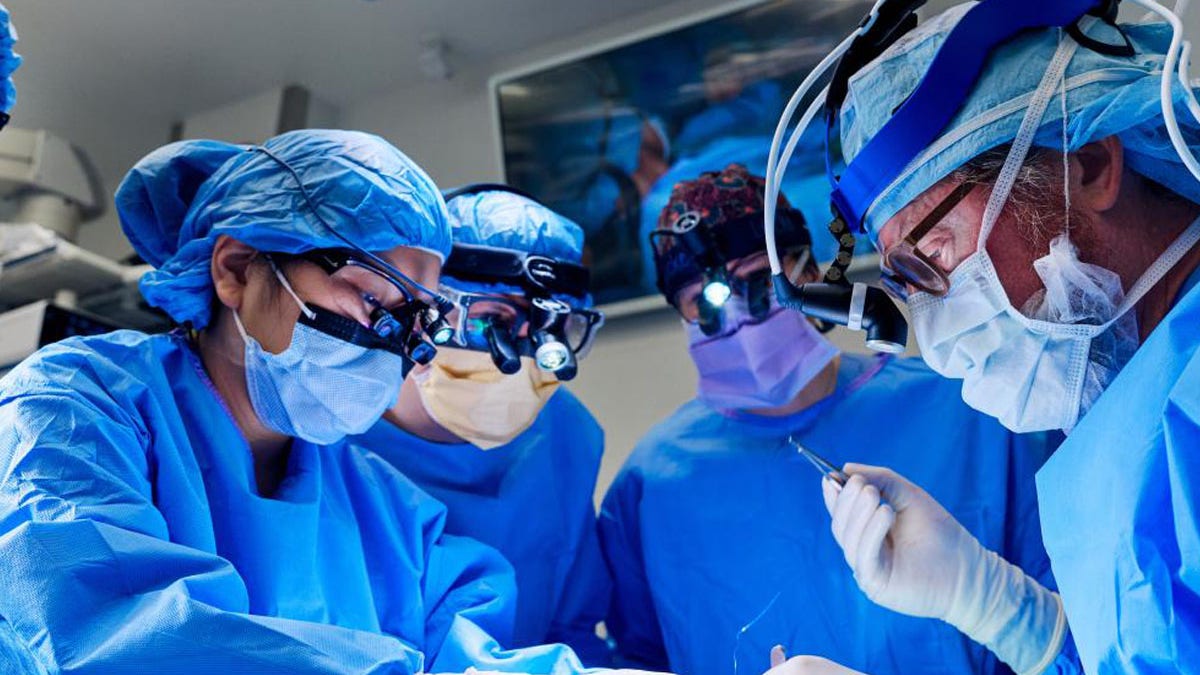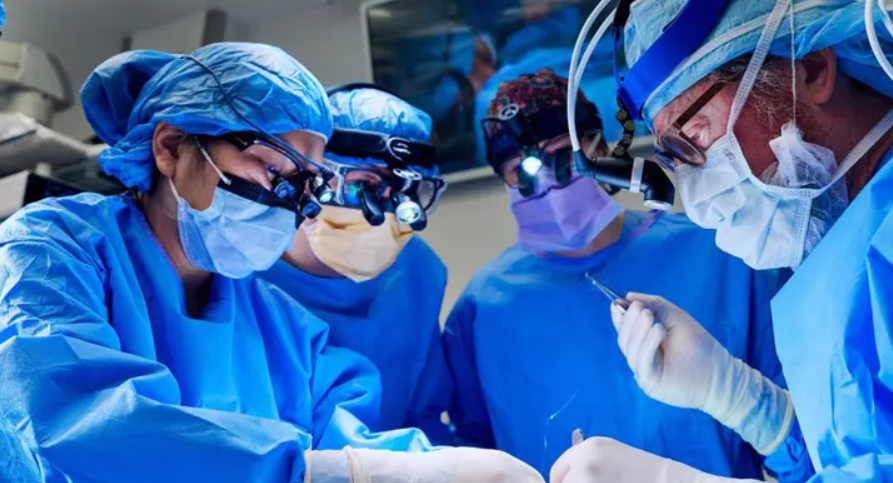An Alabama woman has successfully received a gene-edited pig kidney transplant at NYU Langone Health.
This was the seventh pig organ transplant completed by NYU Langone surgeons.
Towana Looney, 53, miraculously walked out of the hospital just a few days following the procedure.
In an NYU Langone press conference, Looney expressed feeling “overjoyed” and “blessed to have received this gift – a second chance at life.”
“I want to give courage to those out there on dialysis,” she said.
Towana Looney sits for an NYU Langone Health press conference on Dec. 17, 2024. (Fox News)
Dr. Marc Siegel, Fox News senior medical analyst and NYU Langone clinical professor of medicine, joined “America Reports” on Wednesday to share how this should bring hope for the future of transplant medicine.
“We have a great shortage of body organs,” he said. “And even if we get people to donate, we’re still going to have a big shortage … so we’ve got to do something.”
“We can bio-engineer them, or we can use them from other species, [which is] called xenotransplant.”
Siegel commended Looney on her “incredible” journey, which began when she donated her own kidney to her mother 25 years ago.
“She is looking for any other possibility, any other chance, at having a normal life again.”
Looney then developed a rare complication while pregnant, according to Siegel, which led to kidney failure.
NYU Langone Transplant Institute Director Dr. Robert Montgomery called Looney a “hero” while speaking to Siegel in a separate interview.
Dr. Marc Siegel joined “America Reports” to discuss NYU Langone’s successful pig kidney transplant. (Fox News)
“She gave the gift of life to her mother,” he said. “She’s someone who already paid a really significant price for an incredible act of generosity.”
“She is looking for any other possibility, any other chance, at having a normal life again.”
Montgomery shared that he thinks Looney will “change the face of transplantation.”
According to Siegel, Montgomery is one to know about the struggle of waiting for a donated organ, since he himself had a heart transplant after surviving 30 cardiac arrests.
Dr. Robert Montgomery called Looney “one of those pioneers” in transplantation medicine. (Fox News)
“My epiphany in living through that – and realizing that I probably wouldn’t live through it – was that we needed another source of organs,” said Montgomery, noting that “far less” than 1% of people who die every year are eligible to be an organ donor.
“At the same time, the number of people who can benefit from an organ transplant continues to increase,” he added.
Out of the seven pig organ transplants that have been performed at NYU Langone, Siegel confirmed that “this one worked” to the extent that Looney was able to walk out of the hospital.
Montgomery explained to Siegel that this is because the kidney had been modified with 10 genetic modifications.

“This is going to be a big deal when we get past the rejections,” Siegel said. (Joe Carrotta via NYU Langone Health)
The “key” now, according to the doctor, is to focus on immunology to help ensure that Looney’s immune system doesn’t reject the kidney.
“That’s why going forward, in the future, this is going to be a big deal when we get past the rejections,” Siegel added.



